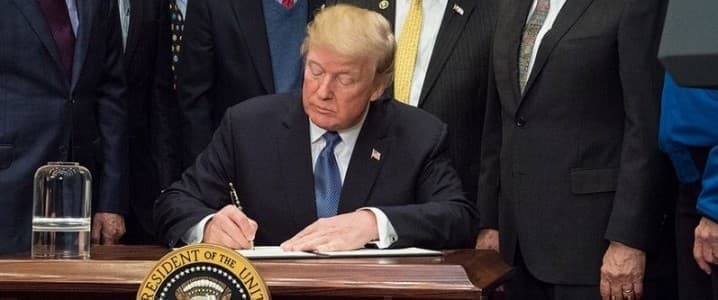The global oil industry has been scrambling for a solution to the dramatic oil price crash and enduring global crude glut from last month. As the novel coronavirus swept the globe over the past few months, shutting down countless industrial endeavors, the devastating economic impact tanked international oil demand and overall energy use. When the OPEC+ leading members of Russia and Saudi Arabia began talks to determine how to respond to the faltering oil demand, the alliance quickly disintegrated, leading to an all-out oil price war and a global crude glut to the tune of about 10 million barrels of oversupply per day.
On Sunday OPEC+ decided to try to reduce the glut and thereby bolster oil prices with historic production cuts. On Monday the coalition led by Russia and Saudi Arabia announced that they will slash production by a whopping 9.7 million barrels in May and June. The United States, for its part, has been typically polarized as to how to respond to the crisis in global oil markets.
Before the Sunday announcement from OPEC+ Trump had been entertaining oil lobbyists from two different camps, arguing over whether the United States should impose tariffs on Moscow and Riyadh, and the President had made public statements that he planned to impose “very substantial” tariffs on oil imports to the United States.
Now, the Trump administration has changed its tune and is considering discouraging U.S. oil producers to curb their own oil extraction. “The Trump administration is contemplating paying oil companies to leave their product in the ground, a measure that could help boost the struggling industry while the market has been crushed by an oversupply of crude,” The Hill reported this week. “According to reporting from multiple outlets, the Department of Energy (DOE) is drafting a plan that would pay companies to leave as much as 365 million barrels untapped by considering it part of the nation’s emergency stockpile.”
Premium: The Oil Sector That Will Suffer The Most
This news has sent shockwaves through the domestic energy sector, which has never seen this kind of unprecedented policy from the federal government. This initiative is still in a very tentative phase, however, as this plan “would be unprecedented and likely to face resistance from Congress, where Democrats were able to thwart a $3 billion request to fill the Strategic Petroleum Reserve (SPR) outright.”
This has not stopped President Trump, however, from speaking publicly and assertively about the idea, saying that “the government should stock up on oil while prices are at historic lows, and the DOE plan appears to already have some support from Republicans,” as paraphrased by The Hill. The DOE has not yet sent a formal proposal to Congress, but existing legislation dictates that “federal law allows DOE to set aside up to 1 billion barrels of oil for emergencies, but it doesn’t stipulate where it must be stored.” To this point, President Trump has repeatedly spoken about the possibility for oil companies to store crude oil on private tanker ships, and some crude is already being stowed in rail cars.
Even if they go through, however, these measures will do little to put a dent in the current crude glut. What’s more, the considerable more austere measures taken by OPEC+ over the weekend have so far done little to correct the market either. “Even with market forces expected to drive U.S. oil companies to drop production by 500,000 barrels a day, a little less than 5 percent of average production,” reports The Hill, “the market is still facing a glut of oil as demand for fuel has declined 30 percent in the midst of the coronavirus.”
Energy demand will not bounce back in the immediate future, either, as the global economic shutdown persists, and some countries are only now beginning widespread shelter-in-place measures.
By Haley Zaremba for Oilprice.com
More Top Reads From Oilprice.com:
- U.S. Drillers Shed 260 Rigs In Five Brutal Weeks
- Saudi Arabia Slashes Asian Oil Exports By 2 Million Bpd
- Chinese Bargain Hunters Are Stocking Up On Ultra Cheap Crude Oil


















